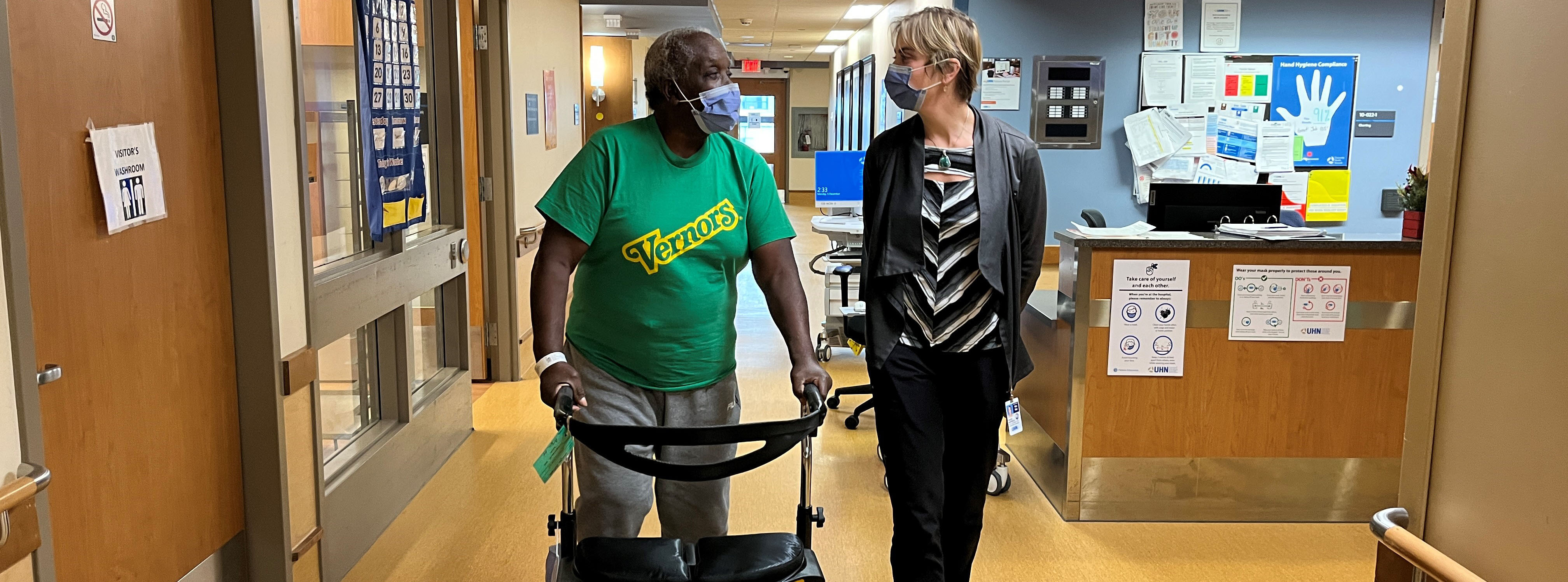
A "Therapeutic" Fall is a fall that takes place in a hospital during a high-risk activity that the patient has chosen to practice, promoting independence as part of their recovery. This activity is one where the patient feels the potential benefit exceeds the potential risk for harm. (Andreoli et al. 2022)
About "Therapeutic" Falls
Falls are the leading cause of harm in hospitals. Despite best efforts, providers often feel shame when a patient falls. As a result, they may adopt a custodial approach to mobility and avoid discussing risk with patients and families.
"Zero falls does not mean zero harm"
This work proposes that:
- Falls in rehab may be the
natural outcome for some patients striving toward independence
- Health care providers can reduce the
harmful consequences of lying in bed
- Ensuring that patients are safe in the hospital,
does not mean they will be safe at home
- Falling can be dangerous, but can also reflect
effort and recovery
Patients should not be asked to make decisions about risk, alone.
– Physiotherapist, Toronto Rehab
It felt wonderful, but I was a little scared that I would fall. I fell one time in the hospital, but I never fell at home.
– Patient from Acquired Brain Injury Service, Toronto Rehab
Ethical Underpinnings
-
Autonomy – ultimately patients are in charge of their recovery and will not be in rehab forever
-
Open dialogue about risk helps patients make informed decisions,
guided by their health care team
-
Safety is not everyone's top priority – some patients prioritize independence over safety
-
Harm isn't just physical – prioritizing physical safety over mental health could result in psychological or emotional harm
A note about the term "Therapeutic Fall" – Not all falls are created equal
We understand that the term therapeutic fall can be seen as problematic from different viewpoints. Some might think it refers to falls that happen during therapy sessions, while others might see "therapeutic" as implying something inherently beneficial and harmless, which isn't always the case with falls.
The term 'Therapeutic Fall' was endorsed by a 25-member advisory committee which included healthcare providers, leaders, educators, learners, external experts and patient partners. During discussions, all patient partners expressed their preference for the term
Therapeutic Fall to emphasize that this type of fall is different from an unexpected fall.
